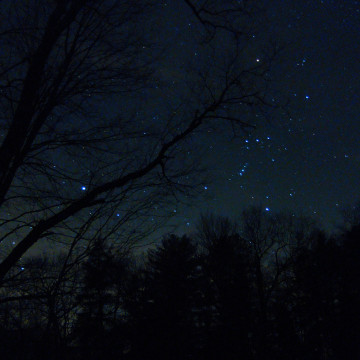It is seven in the morning and the light is still new on our 17 degree January day in the high desert of New Mexico. We are standing in the Zendo at Upaya Zen Center. It is spare, cleaned daily on hands and knees with small, white towels. The floor, a dark wood, reflects candlelight from two wide candles burning at precisely the same speed. The smell of incense is subtle as it lifts small smoke ghosts from a sandy dish next to Manjushri, the Bodhisattva of wisdom. The bronze statue represents an enlightened being holding a sword to cut through confusion. He sits confidently, shoulders back, on a table of straight lines near ten-foot wide and twelve-foot high doors which open to the Zendo’s main room.
Dark blue meditation mats line all four walls. On the edges of the dimly lit Zendo are the monastics of Upaya. Standing stiffly, shoulders taut, hands in gassho (which looks like a traditional prayer position) twenty men and women dressed in black are waiting barefoot, eyes straight ahead revealing nothing. We are waiting for the memorial service to begin.
The father of one of our priests died five days earlier. Joshin is going to say a few words as we offer up chants in the name of his dad, a Catholic Italian man from the Bronx who surrendered to a lifelong fight with alcoholism. Joshin speaks with remarkable honesty, his voice halting as he describes coming out to his dad when he was still a young man. The priest, a thoroughly modern man in his fifties, openly gay, Buddhist, with a partner who is a university professor three states away, tells how his father supported him through his transitions from a young Catholic monk to the middle-aged, head shaven, black-robed man he is today. Joshin, also a dad to three adopted sons, says his father saved his life because while others had to fill deep emotional holes from the rejection of their families, he had no such experience. He ended his talk with the following haiku in honor of his dad:
“The bell stopped ringing
but I can hear it in all the flowers”
As a tear fell down my face I stayed in focused attention with the other monastics who also fought back tears. Joshin bowed and left after the service ended with a graceful thank you.
Not ten minutes later as we attended to the Zendo, dusting and sweeping and cleaning by hand, I saw the priest giving a young man a lesson on meditation techniques. His face was filled with joy, love and patience as if he had not sent his father into a new life a few minutes earlier. Joshin revealed no sorrow, only happiness.
When he memorialized his father he was in total devotion to that task. Minutes later when he taught a new practitioner about the mysterious ways of Zen he gave himself to that work just as completely. It is the job of a Zen Master to live in each moment fully and to accept with wholeheartedness the law of impermanence. We all arise and pass away just as the flame on a candle. Joshin showed this understanding with an open normalcy as if this is how we all are, as if all memorial services are thoughtfully and quickly completed with both full sorrow and joy. It was effortless.
In Buddhist teachings, once a person has left this earth they will return in forty nine days to begin again unless they are an awakened Buddha who has broken this cycle. The memorial service is a way to acknowledge this transition, which some believe eases the way for a happy re-birth. They are by nature not sad. Of course even the most devote Buddhist knows this is not the real, factual story, but a story which could be true. Either way there is this moment to live in fully.

All we know for certain is that there is not certainty, only experience. If we are really listening to the stirrings of our true selves we will find where we fit in the space, the expanse of silence at the center of a breath or a haiku when all else falls away. The experience of this, many Buddhists believe, is Nirvana. This is the “emptiness” which is connected to all of life through its impermanence and transitions. It is this emptiness or space which is at the core of understanding and peace and I believe it is why Joshin moves seamlessly between a memorial for his father and the teaching of a student–he has lived within the great emptiness.
Before a Zen Master dies he must write a poem or haiku for himself. The great American writer Allen Ginsberg said of a haiku that God is in the space between the first thought and the next and that’s how you know if what you have read is truly a haiku. Like all things Zen, words fail the experience but in reading out loud you can feel the space and if you are willing,recognize it as God and that’s what Ginsberg meant.
In witnessing today’s memorial service my thoughts went to my own father who died a year ago. He would have appreciated the intellect and austerity of Zen. Had he thought of it I feel certain he would have penned a haiku for himself. Robert Christie often thought of himself as a solitary man; he struggled with insomnia ever since he stopped working and living on ships as a merchant seaman. When I am able to see God in the emptiness I’d like to bring my dad along, so here is his haiku:
“The night wolf is silent.
I hear him in the ocean’s song.”
Good night Daddy. May you awaken in a kind and loving life.
More in Voices: 27 Carrots – A Story from a Zen Monastery
My Real Mother was a Cat – A Story of Love
__
Photo: Glenn Marsch via Flickr




